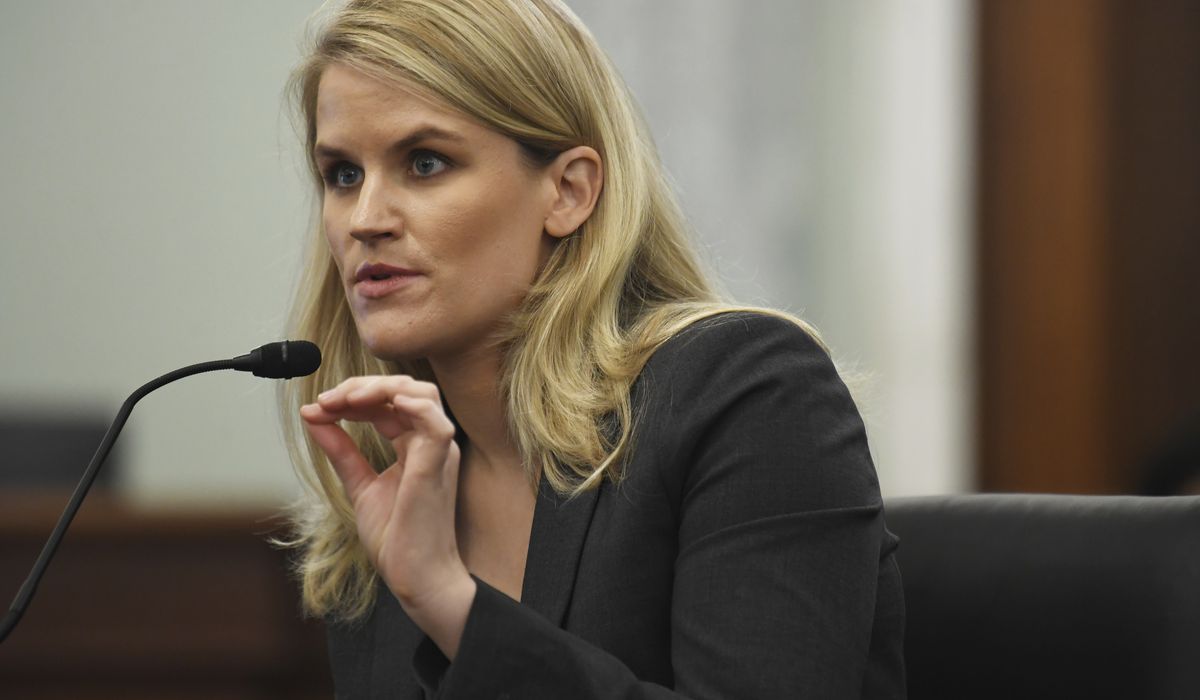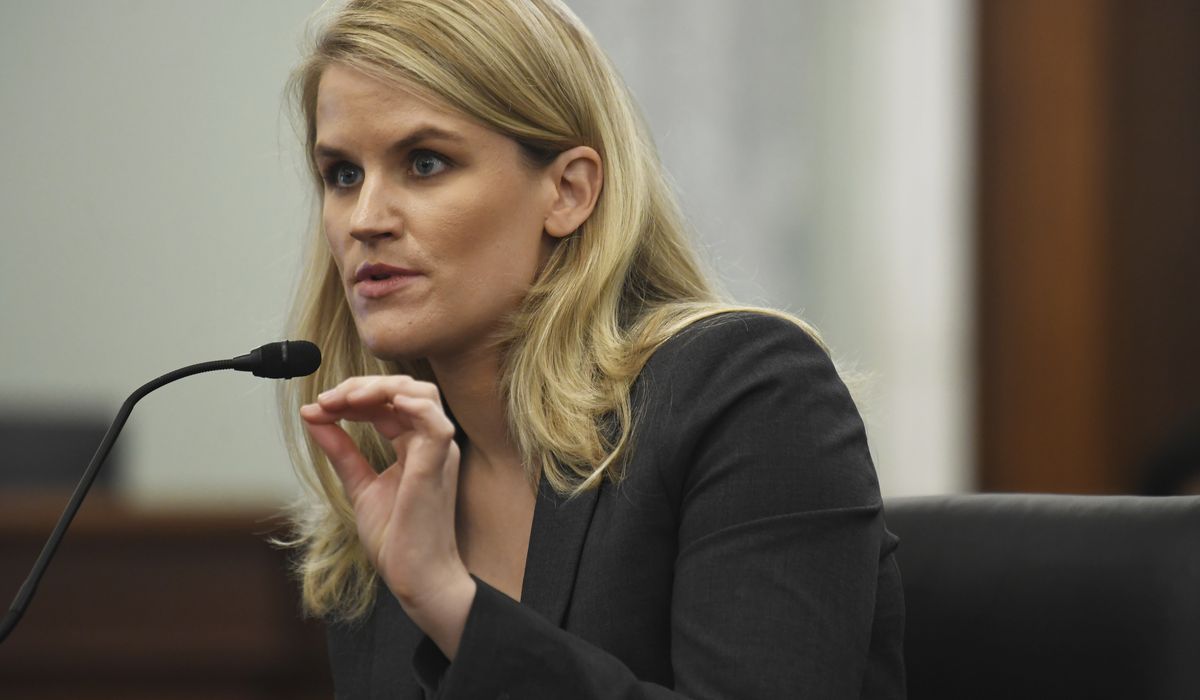
A key Democratic senator and a former Facebook employee on Tuesday argued that the social media company knowingly harms children similar to the tobacco industry’s past exploitations.
The line of attack comparing cigarettes to social media emerged during a Senate hearing featuring the testimony of Frances Haugen, a former Facebook employee and self-described whistleblower, on how Facebook and its Instagram product operate.
She said Facebook is determined to increase its audience “by hooking kids” on an “addictive experience.”
“The bullying follows them home,” she testified. “It follows them into their bedrooms.”
Sen. Richard Blumenthal, Connecticut Democrat, said Facebook and other large technology companies are facing a “Big Tobacco moment, a moment of reckoning.” He said accusations that Facebook knows its product hurts children reminded him of his experience as Connecticut’s attorney general pursuing tobacco companies that knew their products caused cancer.
“Big Tech now faces that Big Tobacco jaw-dropping moment of truth. It is documented proof that Facebook knows its products can be addictive and toxic to children,” Mr. Blumenthal said. “And it’s not just that they made money, again; it’s that they valued their profit more than the pain that they cause to children and their families.”
Ms. Haugen likewise accused Facebook of hurting children and said the public has less insight into how Facebook operates than the public did about tobacco companies.
“Facebook will tell you privacy means they can’t give you data. This is not true,” Ms. Haugen told senators. “When tobacco companies claimed that filtered cigarettes were safer for consumers, scientists could independently invalidate these marketing messages and confirmed that, in fact, they posed a greater threat to human health. The public cannot do the same with Facebook. We are given no other option than to take their marketing messages on blind faith.”
To understand how Facebook might harm children, Mr. Blumenthal said, his office last week pretended to be a 13-year-old girl on Instagram following accounts associated with dieting and eating disorders. Mr. Blumenthal said his fake account soon received recommendations to follow other accounts promoting self-harm and eating disorders.
Sen. Marsha Blackburn, Tennessee Republican, has said she is scrutinizing Facebook for problems involving human trafficking, the increased risk of girls committing suicide and other issues.
Facebook has disputed criticisms that it knowingly hurts children. During testimony before the same subcommittee of the Senate Commerce Committee last week, Facebook executive Antigone Davis said people have mischaracterized the findings of her company’s internal research.
“I’ve seen firsthand the troubling intersection between the pressure to be perfect, between body image and finding your identity at that age,” Ms. Davis told Mr. Blumenthal last week. “And I think what’s been lost in this report is that, in fact, with this research, we’ve found that more teen girls actually find Instagram helpful. Teen girls who are suffering from these issues find Instagram [more] helpful than not.”
Ms. Haugen said Congress and the Biden administration need to take action against Facebook similar to how the government responded to the tobacco industry: with more regulation.
Lena Pietsch, a Facebook policy spokesperson, said Ms. Haugen worked for the company for less than two years and did not attend any meetings with “C-level executives.”
“We don’t agree with her characterization of the many issues she testified about,” Ms. Peitsch said in a statement. “Despite all this, we agree on one thing: It’s time to begin to create standard rules for the internet. It’s been 25 years since the rules for the internet have been updated, and instead of expecting the industry to make societal decisions that belong to legislators, it is time for Congress to act.”
Ms. Blackburn said Tuesday that Congress would look at the ways she thought Facebook violated and evaded federal law, particularly the Children’s Online Privacy Protection Act. She said the subcommittee on consumer protection, product safety and data security, which she and Mr. Blumenthal lead, would help spur Congress to take action on privacy and data security.
Although Democrats and Republicans want to make changes affecting large technology companies, no consensus has emerged about what ought to be done.
Last week, members of the Senate Commerce Committee discussed their shared desire for cracking down on technology companies but differed on ideas about what to do. Democrats proposed more taxpayer dollars for the Federal Trade Commission, and some Republicans expressed concern about more layers of bureaucracy and more spending.
Ms. Blackburn made clear Tuesday that she is willing to work with Democrats to advance a crackdown.
“Passing a federal privacy standard has long been in the works. … I think that it will be this Congress, and this subcommittee, that is going to lead the way to online privacy, data security, Section 230 reforms,” Ms. Blackburn said.
Facebook on Monday faced more adversity outside the congressional hearing room. The company’s products, including Facebook, Instagram and WhatsApp, all went offline for several hours.
Facebook apologized for the service disruption and said there was “no malicious activity behind this outage.”
“Our engineering teams have learned that configuration changes on the backbone routers that coordinate network traffic between our data centers caused issues that interrupted this communication,” Santosh Janardhan, Facebook vice president, said on the company’s website. “This disruption to network traffic had a cascading effect on the way our data centers communicate, bringing our services to a halt.”








